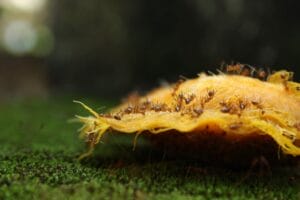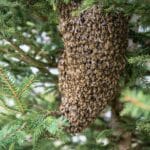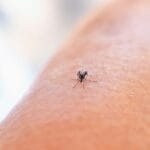Article Overview
- Explore the importance of cleanliness in warding off pest infestations.
- Recognize common household pests and understand why they are drawn to unclean conditions.
- Adopt simple yet effective daily and weekly cleaning routines to deter pests.
- Uncover clever storage methods that make your home less enticing to pests.
- Learn when to handle pests yourself and when to call in professional pest control services.
The Role of Cleanliness in Pest Prevention
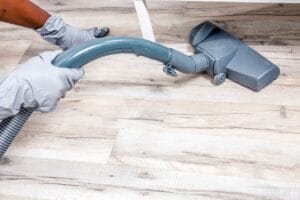
At its core, a clean home is your primary defense against unwanted pests. It’s not just about maintaining appearances; it’s about cultivating an environment where pests have no food, no shelter, and no reason to stick around. By maintaining cleanliness, you’re essentially pulling in the welcome mat for pests, telling them to move on. And believe me, they will.
The Invisible Link Between Filth and Vermin
Everyone knows that pests love filth and mess. But why? Because it gives them everything they need to live. A crumb on the floor is a banquet for an ant, and a stack of newspapers can turn into a luxury condo for a silverfish. By getting rid of these temptations, you’re cutting off their supply line and safeguarding your home.
Cleanliness and Safety: It’s Not Just About Looks
Cleanliness is closely related to safety. Pests such as rats and cockroaches can transmit diseases, while others, such as wasps, can pose a direct threat. As a result, maintaining a clean home is not just about aesthetics; it’s about ensuring the safety of you and your family.
Unwanted Visitors: Regular House Pests
Know Your Enemy: From Ants to Mice
Let’s get to know the usual culprits. Ants, cockroaches, rodents, and flies are the most frequent uninvited guests in households. Each one has their own motivation for visiting, but they all share one thing: they’re in search of resources. And a cluttered house is like an open buffet for these pests.
Keep in mind, bugs aren’t fussy. A tiny spot of grease behind the cooker or a missed spillage of cereal under the refrigerator can provide enough food for a small battalion of ants. It’s the small details that matter.
The Reason Pests Thrive in Dirty Environments: A Matter of Survival
Pests are survivors, and they find a wealth of resources in messy environments. Clutter gives them places to hide and materials to build nests, while spills and food scraps provide a constant source of food. When you keep your home clean, you’re disrupting their survival tactics and making it difficult for them to thrive.
How to Keep Your Home Pest-Free
Essential Cleaning Habits You Should Start Now
You don’t have to clean all day to prevent pests from coming in. It’s all about being clever with your cleaning habits. Here are some daily and weekly tasks that can have a big impact:
Everyday Chores: Swift Tidying
- After preparing a meal, clean your kitchen counters to eliminate leftover food particles.
- To collect crumbs and pet fur, sweep or vacuum your floors.
- If it has food waste in it, take out the garbage on a regular basis.
These simple jobs stop pests from locating food in your house. And if there’s no food, they won’t want to stick around.
Weekly Cleaning Wonders: Thorough Cleaning Techniques
Each week, set aside some time for a more thorough clean. This involves moving appliances to clean behind them, cleaning underneath sinks, and even scrubbing walls if needed. These measures might seem excessive, but they can significantly decrease pest attractions in your home.
Intelligent Storage Strategies to Keep Pests at Bay
Let’s turn our attention to storage. The methods you use to store food and get rid of rubbish can either help or hinder your pest control attempts. Here’s how to ensure everything is sealed up tight and out of the way of those annoying intruders.
Essential Food Storage Tips
- Keep dry food in containers that are airtight. This will help to keep the food fresh and stop pests from getting in.
- Store fruits and vegetables in the fridge or a sealed bowl if they are likely to attract fruit flies.
- Try not to leave pet food out overnight. If you can, feed your pets at set times and keep their food stored away safely.
Decluttering: Your Defense Against Pests
In addition to that, clutter is a paradise for pests. They enjoy hiding and reproducing in piles of papers, old boxes, and unused clothing stacks. Regular decluttering removes their living spaces and discourages them from making themselves at home.
Advanced Hygiene Practices for Your Home
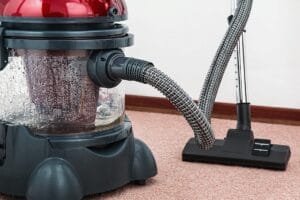
- Consider purchasing a high-quality vacuum cleaner with a HEPA filter to catch minuscule particles and allergens that could attract pests.
- Opt for microfiber cloths for dusting, as they trap particles instead of dispersing them.
- Look into a steam cleaner for deep cleaning your floors and upholstery without the use of chemicals.
Selecting the Best Cleaning Products
Cleaning products are not all the same. Choose products that are both effective and safe. Potent chemicals can be harmful to your family and pets, and they’re not always necessary for effective pest control.
Homemade Organic Pest Control
There are a number of simple, homemade pest control solutions that you can use in your home. For instance, a mixture of water and vinegar can be used to repel ants, while peppermint oil can be used to keep spiders at bay. However, keep in mind that these solutions should not be used as a substitute for cleanliness, but rather as a supplement to it.
Using Herbs and Spices to Deter Pests
A variety of herbs and spices can be used as natural pest deterrents. For example:
- Flies and mosquitoes can be repelled by basil.
- Cinnamon isn’t only for baking; it can also deter ants and other pests.
- Placing bay leaves in your pantry can help deter weevils and other pests from your dry goods.
DIY Sprays for Immediate Pest Control
If you notice bugs in specific spots, a DIY spray can provide an immediate solution. Combine water and a few drops of essential oil, such as lemon or eucalyptus, and spray it on the affected area. While this is a short-term solution, it can help you relax while you work on a more permanent plan.
When Should You DIY and When Should You Hire a Pro
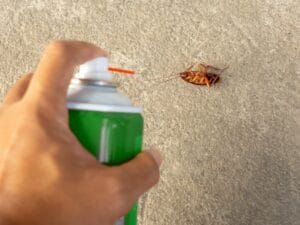
DIY pest control can be effective for small problems, but when it comes to large infestations or dangerous pests like rodents or termites, it’s best to hire a professional. They have the experience and tools to handle these situations safely and effectively.
Do-it-Yourself Tips for Pest Prevention
For minor problems, here are some do-it-yourself tips:
- Seal up any cracks or openings on the outside of your home to keep pests from getting in.
- Maintain a clean and tidy yard to minimize the number of places pests can live outdoors.
- Place sticky or light traps in areas where you frequently see pests.
Always keep in mind, if you’re ever unsure, it’s better to seek advice from a pest control expert rather than letting a small problem turn into a big infestation.
When to Call in the Pros for Pest Control
Wondering when it’s time to bring in a professional pest control service? Here are some telltale signs:
- Seeing pests during the day, which can be a sign of a significant infestation.
- Discovering droppings or evidence of nesting in your house.
- Hearing sounds in the walls or attic, particularly at night.
- Observing damage to your home’s structure, such as gnaw marks or holes.
- Experiencing ongoing pest issues despite your best DIY attempts.
If you have experienced any of these issues, don’t wait to reach out to an expert. They have the necessary equipment and know-how to handle your pest issue safely and efficiently.
Common Questions and Answers

Here are some of the most frequently asked questions about maintaining cleanliness at home to avoid pests, along with my responses.
How frequently should I clean to deter pests?
Daily cleaning can make a big difference—clean surfaces, sweep floors, and take care of garbage. A more thorough cleaning, like vacuuming and mopping, should be done at least weekly. The key to making your home less attractive to pests is consistency. For more in-depth information, read our guide on pest prevention strategies.
Are store-bought pest control products safe?
While many are safe, some contain chemicals that can be harmful to humans and pets if misused. Make sure to read the label and follow the instructions. If you’re uncertain, it’s always best to use natural products or hire a professional.
Is it possible for pests to become immune to cleaning methods?
Pests can’t become immune to cleaning because it eliminates the food and shelter they require. However, they can become immune to chemical repellents and baits. That’s why cleaning is so important for pest prevention.
What are the most effective natural products for preventing pests?
Natural oils such as peppermint, tea tree, and eucalyptus are known to deter pests. Diatomaceous earth, a non-toxic powder, can kill insects by dehydrating them. And of course, there’s always the tried and true method of soap and water—it may be basic, but it’s effective.
When should I call a pest control service?
You should call a pest control service as soon as you see signs of pests. It’s important to get help early before the problem gets worse. You should also think about getting regular checks to stop problems before they happen.
Always remember, maintaining a clean home is your greatest weapon against pests. By adhering to these suggestions and knowing when to seek professional help, you can ensure a pest-free environment at home. Stay alert, stay clean, and bid farewell to those annoying unwanted visitors.
There is a strong link between cleanliness and pest prevention in the business environment. A clean workspace not only ensures a positive impression on clients and employees but also minimizes the risk of pest infestations. Regular cleaning and maintenance reduce the availability of food and shelter for pests, thereby deterring their presence. Additionally, good sanitation practices can help identify potential pest entry points and allow for immediate remediation to prevent future issues.
